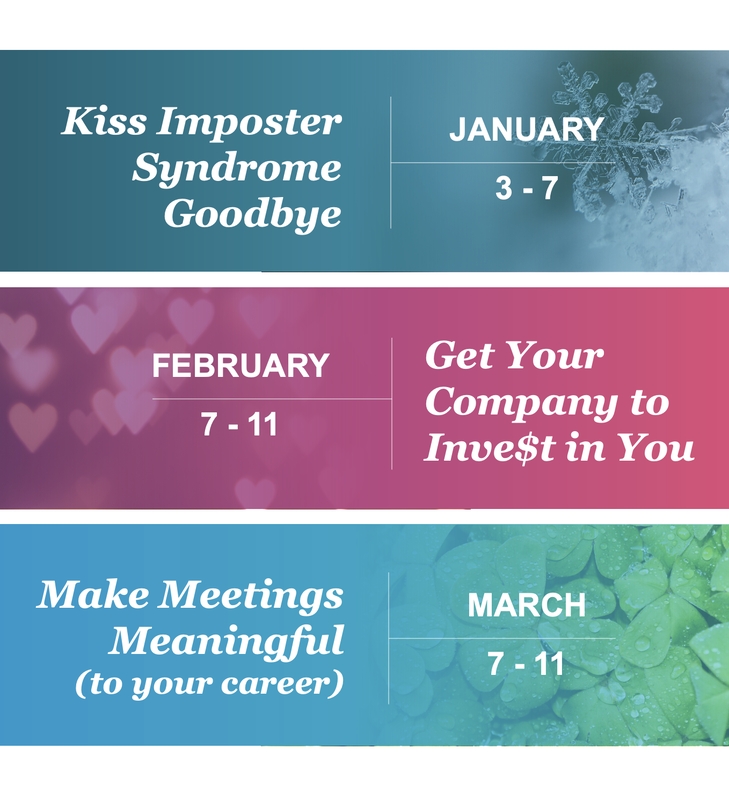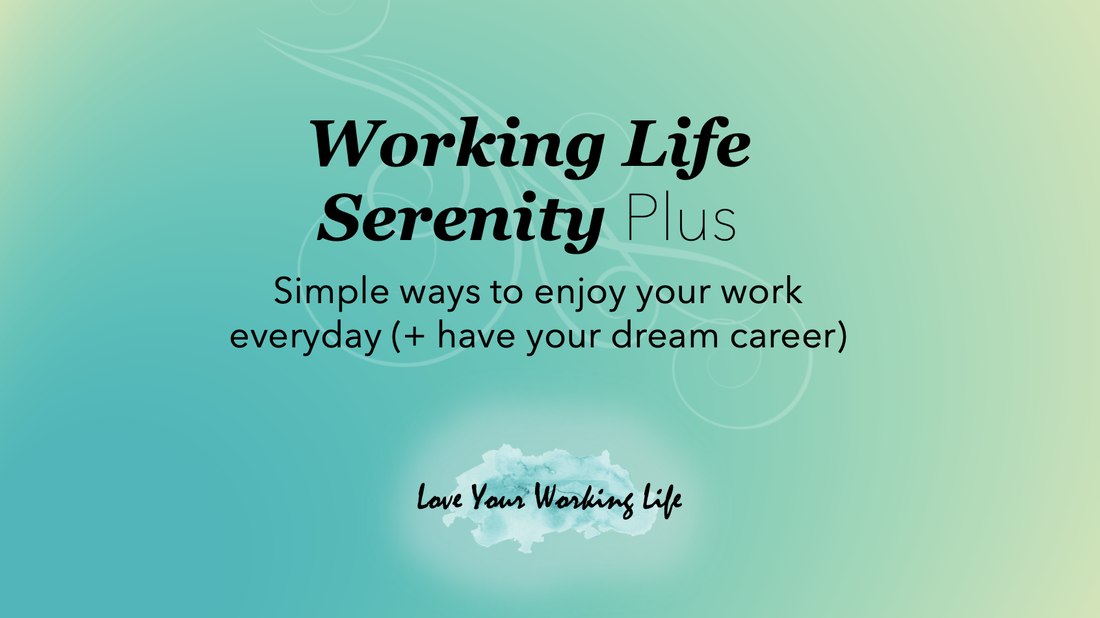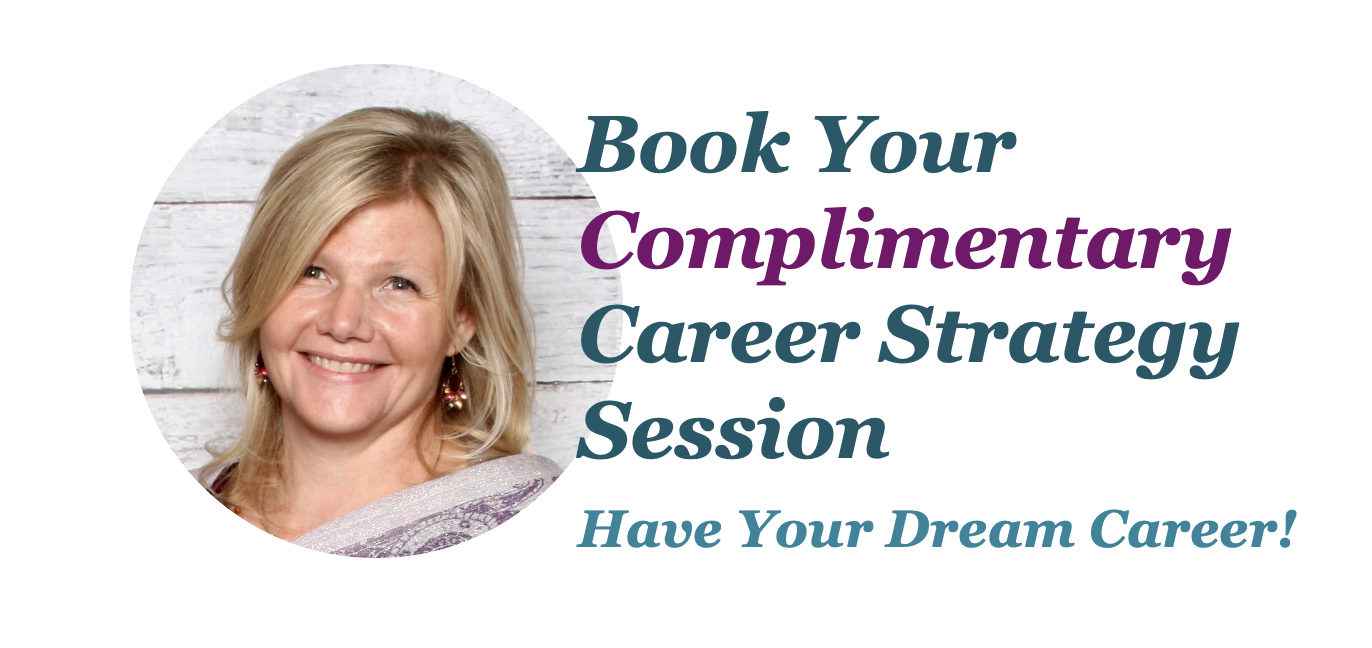|
Hopefully you are reading this curled up at home, enjoying the warm glow of the holidays and looking forward to what the New Year will bring.
New Year’s is often bitter sweet for me; it signals the end of the holiday season (here in North America), and a return to work (with the next break very far off in the distance). It can be overwhelming to think of all the things I want to change in the next year, and the barrage of suggestions from social media and magazines doesn’t always bring comfort. So, may I suggest the un-resolution list?
Let’s focus 2022 on wholeness. In the Working Life Serenity PLUS Facebook Group I’ll be exploring topics from imposter syndrome to building healthy boundaries and career development planning. Essentially, putting working life needs front and center, so you can focus on actioning your un-resolution list. Along the way I’ll share valuable FREE resources in the Working Life Serenity PLUS Facebook Group and, of course, weekly blogs allowing us to travel this path together. I am honoured and deeply touched by having you on this journey with me. Happy New Year.
0 Comments
We can lose sight of the big picture when we focus on the things not done. Deep breath. It's the little things they will remember. Lists grow long during times of celebration in our lives. From deadlines at work to meet the calendar year-end, to the long list of things you want to remember for family gatherings and special recognition of the one’s you love. Quick question; are you making this season about your list, or the people on it? Can you remember what you received as gifts last year? Or what food was served on New Year’s Eve? Likely there are one or two things that stand out from previous year’s celebrations, but they are not likely to be material things. Social convention can quickly feed into the more material aspects of celebration; the best food, the perfect gifts, presenting a “camera ready” home. Yet, in the end, it is kindness that is remembered, the majority of the rest becomes “debt debris” on your credit card. Here's the 1 strategy you need to make your "To Do" list shrink:
From doing something thoughtful for a boss, co-worker or a friend (like letting them know how they’ve contributed to more meaning in your working life), to making time for loved one’s over the holiday season (being spontaneous, inviting them in even if the house isn’t tidy), these are the things that make a difference and will be remembered. Rather than a list of things you want to do this holiday season, make a new list. A list of how you want to feel (and how you’d like to contribute to making others feel) – that list will put you right in the path of kindness. It’s the little things that make a big difference.
As we edge closer to the end of the year, time seems to move more quickly, which is both blessing and curse. With everyone being more aware of the calendar, work often picks up pace. Organizations evaluate how productive they’ve been this year, and what’s still left on the corporate “to do” list. Initiatives that have languished until now are getting renewed attention (if not resources) and there are new calls for getting things done, creating pressure. Home gets busier too with the run up to holidays. So many cultures celebrate peace, light and love at this time of year, which makes the holidays special. And puts pressure on schedules with travel planning (coordinating everyone’s time), gift giving and meal planning (making all the favourites, no matter how time consuming). There’s a lot of expectation riding on you, both at home and at work. I’ve often wondered why it can’t spread itself out better throughout the year, but here we are, the last few weeks in the year trying not only to make it all happen, but enjoy it too. Enjoyment is usually the collateral damage of high expectations, at work and at home. Give yourself the gift of serenity this holiday season, you won’t regret making this holiday one you enjoy.
Do not allow expectations to rob you of the enjoyment of the season, at home or at work. The holiday blues happen when you’ve worked yourself beyond your limits and have no energy (or good will) left to enjoy the season – even though you got it all done. This isn’t something that only impacts you, it impacts your loved ones too. Give yourself the gift of serenity, and make the best holiday memories with family and friends.
It was a story every caring professional can relate to. My client had started her career with good boundaries in place, allowing her to enjoy balance between work and home. In her own words, it was lovely. And then an exciting project came along, and for a temporary period of time she worked 50-60 hours a week. The work was rewarding, and she increased her visibility – so much so she received a promotion. It was a dream come true Her new role had a lot of travel and sensitive deadlines, so the 60 hours a week continued (and sometimes crept up to 70-80 hours a week), until 2 years into the new job things were completely falling apart at home, and she recognized she was no longer enjoying her work. Her dream had become more of a nightmare. She was on the edge of burning out. She came to me to help her find a new dream job that would give her back her sanity. With her permission, I helped her take the dream job she had and made it work for her. If this story mirrors your professional life, then know there are always things you can do to stop work-creep and burnout. You can put healthy boundaries between work and life back into place, without losing your credibility, or your dream career. Here are strategies to do just that:
You're a great person and a committed, caring, professional, so it’s easy to see how you get to a point where the boundaries between home and work blur beyond what’s healthy for you. That said, you are the only one who can put these healthy boundaries back where they belong. Doing it where you work today means you will be less likely to blur them at your next job (blurring boundaries becomes a habit that follows you wherever you go) keeping you on the path to your dream career. Don’t over-commit in one place in your life at the expense of another, or you’ll lose something precious you need – something even more precious than time.
“I don’t want to change jobs right now.” It was a statement delivered with conviction by my client. “But I need to make more money. Can you help me?”. Yes, of course. This client had been in his current job for a few years, and while he had received salary increases over time, he felt his skills and abilities merited more pay. He just had no idea how to ask for it without painting himself into a corner; annoying (or angering) his manager AND not getting what he asked for (needing to find a new job elsewhere). He liked the work he was doing, and didn’t really want to leave, but he also found it harder and harder to ignore that his skills had grown, providing more value to his organization then his paycheck reflected. It’s a stressful place to be. And it happens more often than you think, especially for mid-career professionals who’ve found that “sweet spot” where you’re in a job you really like and it works well for your life, so you stay awhile. Over time the salary increases you’re given may be fair internal to your peers, but are falling short of what the outside labour market offers. Or worse, someone is hired from outside to do what you do, at a salary greater than yours because your organization can’t secure outside talent without offering more money. Yet your organization hasn’t adjusted salaries (or can’t, or won’t) for those who already work there. Watch for it, sadly this does happen, and the labour market in urban North America is heating up, making this more likely. Don’t get caught in this spiral. Here’s what you can do to make more money where you work today.
As with any negotiation, asking for more compensation in your role needs to be handled with consideration and care. You need a game plan. Working with a career coach can help keep you from making career limiting moves and improve your odds of getting paid what you are worth. My client and I worked together for a few months, gathering data, positioning his skills and visibility at work and practicing for the series of conversations that ultimately got him what he was looking for. All of this begins with knowing what you are worth, and balancing your expectations with conviction.
Ever feel like you’ve stuck your foot in your mouth? Or an entire shoe store? It always happens at the worst possible time! That’s what happens to many professionals during their performance evaluation (and other critical career conversations at work). It’s often hard to know what you said that made you less credible, you just know things were fine one minute, and then everything seemed to go downhill. It’s so easy to do. Your choice of words, tone of voice, even your body language makes a big difference in how your words are perceived by another person. This gets amplified with a power dynamic in play (like speaking with your boss). It’s even further amplified when it’s a crucial conversation – and performance reviews can feel crucial (it’s only your career’s future and financial outcome that hangs on this conversation). If only there was a way to avoid common communication pitfalls in these types of conversations! There is. Check out these 7 things you should NEVER say in your performance evaluation to keep your career nicely on track:
Always check your body positioning (uncross those arms), your facial expression (neutral but positive) and eye contact (consistent but not creepy). Your tone of voice matters too, so if you need to take a moment before you respond to get it just right, then do it; an open and curious tone of voice supports credibility when you need to navigate communication in a performance evaluation. There is a lot you don’t control in a performance evaluation, yet you control the most important person in this conversation – you. Even if the initial review doesn’t go as planned, know you can ask for time to think, reflect and circle back to topics you want to re-visit. In doing so you are empowering yourself to get the performance review you deserve (and gets you to your dream career).
|
|
|









